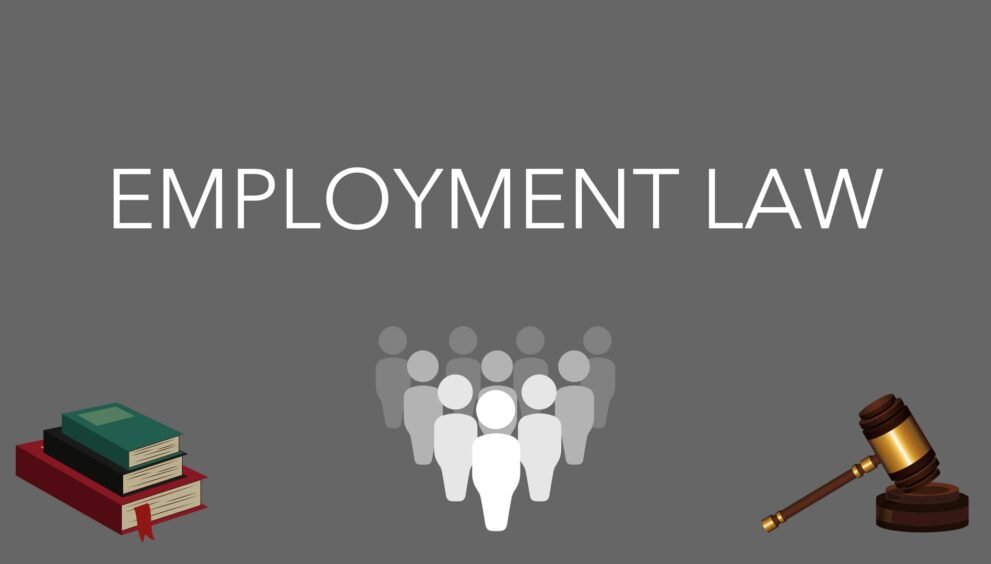How Legal Tech is Enhancing the Practice of Employment Law

Introduction
In today’s fast-changing digital world, technology is transforming industries in every sector. One area experiencing significant transformation is the legal sector, particularly employment law. With the advent of legal technology, or “legal tech,” employment law practitioners are finding new ways to enhance their practices, streamline processes, and better serve their clients. In this article, we’ll explore how legal tech is revolutionizing employment law, its benefits, and what the future holds for this dynamic intersection of technology and legal practice.
Understanding Legal Tech in Employment Law
Legal tech involves the use of technology and software to deliver legal services and enhance the legal sector. In the context of employment law, legal tech encompasses a range of tools and platforms designed to assist lawyers in managing employment-related cases more efficiently. From contract management and case analysis to compliance checks and dispute resolution, legal tech is a game-changer in the employment law arena.
Key Benefits of Legal Tech in Employment Law
- Increased Efficiency and Productivity: Legal tech tools help employment lawyers automate routine tasks, allowing them to focus on more complex legal issues. Document automation software can quickly generate employment contracts, while case management systems streamline workflow and track case progress. By reducing manual workload, legal tech enhances efficiency and productivity, enabling lawyers to handle more cases effectively.
- Improved Compliance and Risk Management: Compliance with employment laws and regulations is crucial for businesses. Legal tech solutions provide tools for monitoring and ensuring compliance with ever-changing employment laws. These platforms can alert businesses to regulatory changes, thus minimizing the risk of non-compliance and potential legal issues.
- Enhanced Data Analysis: Employment law involves handling vast amounts of data. Legal tech uses advanced analytics to process and analyze this data, providing valuable insights. By identifying patterns and trends, these tools assist lawyers in making informed decisions, predicting case outcomes, and crafting effective legal strategies.
- Cost-Effectiveness: Adopting legal tech can lead to significant cost savings for both law firms and their clients. Automation minimizes the reliance on human labor, resulting in reduced operational expenses. Moreover, legal tech makes legal services more accessible to small businesses and individuals who may have previously found employment law services financially prohibitive.
- Better Client Experience: Legal tech facilitates better communication and transparency between lawyers and their clients. Through online portals and communication platforms, clients can access case updates and documents in real-time, enhancing their overall experience. This clarity fosters trust and enhances client satisfaction.
You May Also Like: Legal Tech Innovations That Will Shape the Next Decade
Legal Tech Tools Revolutionizing Employment Law
- Contract Management Software: Automates the creation, storage, and management of employment contracts, ensuring compliance and reducing errors.
- Case Management Systems: Organizes and tracks case progress, deadlines, and documentation, improving case handling efficiency.
- Compliance Tools: Monitors legislative changes and ensures adherence to employment laws, minimizing compliance risks.
- Data Analytics Platforms: Analyzes large datasets to extract insights and support decision-making in employment law cases.
- AI-Powered Legal Research: Utilizes artificial intelligence to expedite legal research, providing faster and more accurate results.
The Future of Legal Tech in Employment Law
As technology continues to advance, the potential for legal tech in employment law is limitless. Emerging technologies like artificial intelligence, machine learning, and blockchain are set to further transform legal practices. AI can enhance predictive analytics, helping lawyers forecast case outcomes with greater accuracy. Blockchain technology offers secure and transparent methods for handling legal transactions and contracts.
Conclusion
In conclusion, legal tech is undeniably enhancing the practice of employment law. By increasing efficiency, improving compliance, and delivering cost-effective solutions, these technological innovations are empowering lawyers to better serve their clients. As legal tech continues to evolve, staying abreast of these developments is crucial for employment law practitioners aiming to remain competitive and provide top-notch legal services.

















































































































































































































































































































































































































































































































































